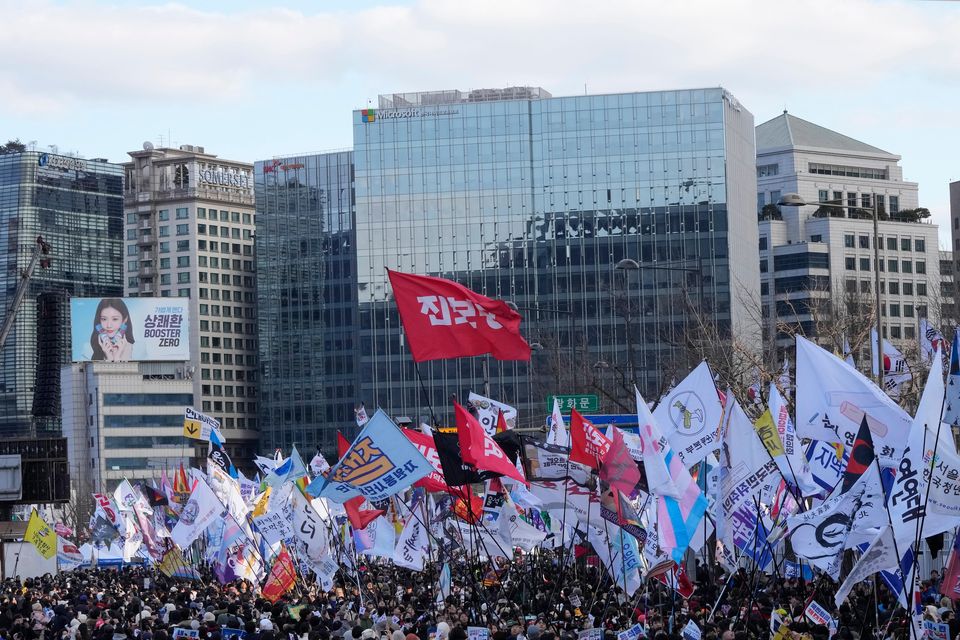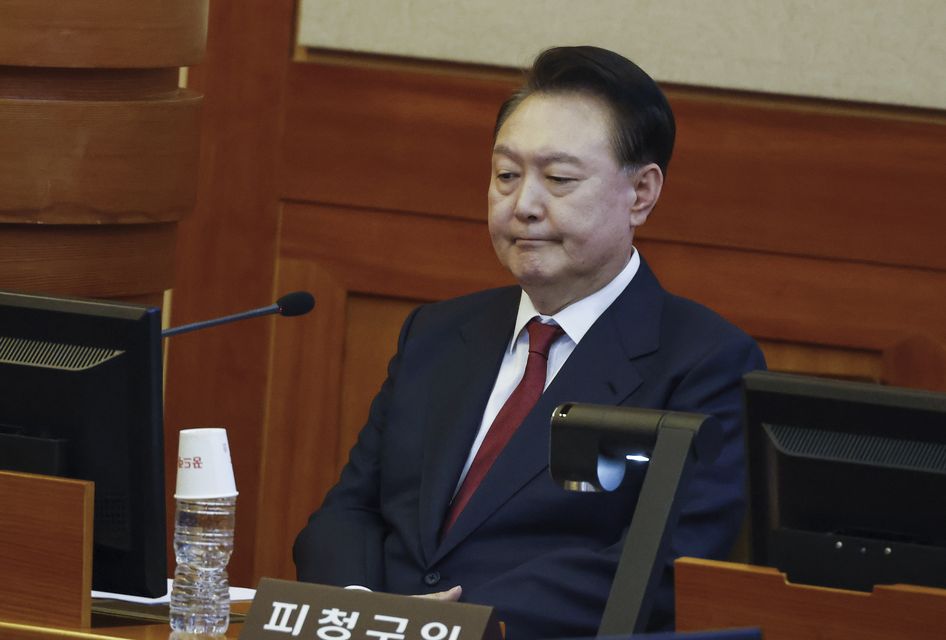South Korean prosecutors have charged impeached President Yoon Suk Yeol with rebellion in connection with his short-lived imposition of martial law, an offence that could incur the death penalty or life imprisonment.
This is the latest blow to Yoon, who was impeached and arrested over his December 3 martial law decree that plunged the country into political turmoil, shook its financial markets and hurt its international image.
Separate from criminal judicial proceedings, the Constitutional Court is deliberating whether to dismiss Yoon as president or reinstate him.
Yoon has become South Korea’s first president to be indicted while in office. He will remain jailed and be escorted from a detention facility to a Seoul court for hearings in the trial, which is expected to last about six months.
Protesters carry flags during a rally demanding the indictment of impeached South Korean President Yoon Suk Yeol (Ahn Young-joon/AP)
Yoon’s defence team confirmed his indictment on a rebellion charge, calling it “the worst decision” by prosecutors who they say are trying to curry favour with political forces who want Yoon’s exit.
“Today’s indictment of the president will remain as a shame in the history of South Korean prosecutors that they cannot erase,” Yoon’s defence team said in a statement. “We stress once again that a president’s declaration of martial law can never be rebellion.”
Prosecutors indicted Yoon on charges that he directed a rebellion when he imposed martial law, according to local media.
Investigative authorities have alleged that Yoon’s imposition of martial law amounted to rebellion because he staged riots with the purpose of undermining the constitution.
Yoon has presidential immunity from most criminal prosecutions but the privilege does not extend to allegations of rebellion or treason. By law in South Korea, the leader of a rebellion can face a life sentence or capital punishment.
Yoon, a conservative, has steadfastly denied any wrongdoing, calling his declaration of martial law a legitimate act of governance meant to raise public awareness of the danger of the liberal-controlled National Assembly, which obstructed his agenda and impeached top officials.
Yoon Suk Yeol imposed martial law (Jeon Heon Kyun/Pool Photo via AP)
During his announcement of martial law, Yoon called the assembly “a den of criminals” and vowed to eliminate “shameless North Korea followers and anti-state forces”.
After declaring martial law on December 3, Yoon sent troops and police officers to the assembly but enough lawmakers still managed to enter an assembly chamber to vote down Yoon’s decree unanimously, forcing his Cabinet to lift it.
The martial law imposition, the first of its kind in South Korea in more than four decades, lasted only six hours. However, it evoked painful memories of past dictatorial rules in South Korea in the 1960s-80s when military-backed rulers used martial laws and emergency decrees to suppress opponents.
South Korea’s constitution gives the president the power to declare martial law to keep order in wartime and other comparable emergency states but many experts say the country was not under such conditions when Yoon declared martial law.
Yoon insists that he had no intentions of disrupting assembly work, including its floor vote on his decree and that deploying troops and police forces was meant to maintain order.
But commanders of military units sent to the assembly have told assembly hearings or investigators that Yoon ordered them to drag out lawmakers to prevent them from overturning his decree.

